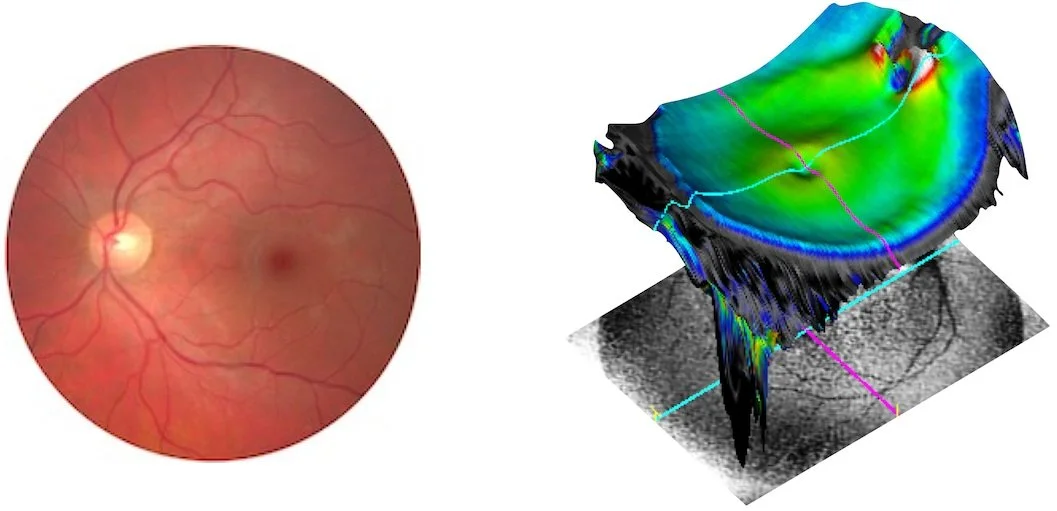What is an OCT?
As part of your comprehensive eye exam at SK Eyecare, our techs will offer you the option of having an imaging similar to an ultrasound performed on your eyes.
It sounds quite techy, but what exactly is an OCT and what makes it so important?
What Is an OCT Scan?
Optical coherence tomography (OCT) is a non-invasive imaging technique that creates detailed, cross-sectional images of the retina - the layer of tissue in the back of the eye that contains photoreceptors - cells that detect light, convert them into brain signals, to then give us our VISION.
The OCT is analogous to an ultrasound except instead of using sound, it illuminates the retina with light.
As the light bounces back through the tissue, it measures the reflections and light scatters, and then converts the information into an impressive sculpture, creating for us detailed 3D images of the retina and all its layers.
Why Would SK Eyecare Recommend an OCT for me?
There are several reasons why our team might suggest you to have an OCT done as part of your eye care.
Take a look at the Top 6:
Screening for eye conditions such as glaucoma, UV damage, a freckle (or nevus), or a retinal tear or detachment
You may show “red flag” signs (what the doctor sees) or symptoms (what the patient feels) that warrant a scan to rule out a sight-threatening issue
Monitoring the progression of an existing eye condition such as age-related macular degeneration (ARMD) or diabetic retinopathy
Evaluating the effectiveness of treatment for an existing eye condition
Screening to detect early signs of eye conditions in high-risk patients such as those with anatomical factors, high prescriptions, or a family history of eye disease
Screening to detect early signs of eye-related complications (retinopathy or maculopathy) in patients with systemic conditions such as diabetes, high blood pressure, or autoimmune conditions.
Be sure to let your SK optometrist know if you are experiencing a sudden episode of blurred vision, floaters, light flashes, or having trouble seeing in low-light settings in order to determine if an OCT might be necessary for taking care of your ocular health.



